What is MQA Audio?

MQA (or Master Quality Authenticated) is a new format for high-resolution audio streaming and music download. Technically it’s an audio codec -- a way of packing large analog-quality songs into digital files small enough to download or stream from a mobile device.
Why MQA?
This is the simple and straightforward answer. But here at Audio Advice, we not only love the gear and the specs, we love the music itself -- so let’s dig a little deeper into what MQA is and what it means for the industry and the way we listen to music. To understand MQA, we need to take a step back to the live performance.
What is it about being at a live event that makes us feel more involved in the music? We are either tapping our foot, getting up to dance, or slipping into the musical trance that takes our mind off everything but the music. Is it the volume? The range? The dynamics? Our opinion is that it is none of these. What is it then? Well, it’s the emotion in a live performance you can just sense.
So what gets lost when we hear a recording of the same thing? For years and years, we have felt it was the timing of the sounds. Our brains seem to be very sensitive to this. Back in the days before CD, we felt the turntables that spun the most true revealed the musical emotions better than those that did not. We especially disliked direct drive tables due to the fact they were constantly correcting the speed and thus really messing up the timing.
When CD’s first came out, all of this emotion was gone. Sure the sound was pure, dynamic, wide in range and silent, but it was just missing something. The CD mastering format takes samples of the music and a lot of them. But it’s still missing some of the music. We felt like it was those tiny timing changes that allowed you to sense more of the music. As better and better CD players emerged, the engineers figured out parts of this and yes, they got better.
Then we had iTunes. A super convenient music format that took away about 90% of the fine musical details in its compression process. The pro was you could have tons of music in the palm of your hand, but to anyone with a critical ear, it just did not sound very good/
Flash forward to today and vinyl and turntables are selling like crazy again. We think one reason is that vinyl playback on a great system connects you more to that sense of timing.
The other segment of the market that is flourishing just like vinyl is streaming music. For a music lover, you just can not beat a streaming subscription. For $5-$20 a month you literally have access to almost all the music in the world. Every time I go to Tidal I feel like I am in this massive library and can wander the music aisles sampling and discovering new music.
Streaming is a fantastic way to experience a ton of music, but just like compressed files on the iTunes store, you are missing that emotional feeling when you compare them to a great vinyl or digital system.
What does this have to do with MQA?
Well, everything! They say technology is moving faster in some cases than humans can adapt to. Well, with MQA, bring it on!
MQA was invented by the team at Meridian in late 2014. It is now owned by MQA Ltd. There was a small buzz about it at CES 2016 and a far bigger buzz at CES 2017. The reason for all this talk was the announcement of over 5,000 albums being available on Tidal streaming in MQA.
MQA promises us that nothing will be missing from the original master tape, yet it can be delivered in a digital format that has a file size no bigger than a standard CD.
The process starts with the original master tape. All of the subtle timing details that would normally eat up a ton of data space are folded into the file via using MQA technology. This file can be delivered inside any of the three popular compressed formats of FLAC, WAV, or Apple Lossless. This music file can be played back on any conventional system and will offer you slightly better sound than a non-MQA version. It’s totally backward compatible.
However, the real magic occurs when you have a system capable of unfolding the file with all of the timing details. When you have a streaming device capable of unfolding the MQA data, the music is transformed. You will feel like you are part of the recording and get that same feeling of a live concert.
We heard a demo of MQA at CES in the AudioQuest room. They were comparing MQA using their Dragonfly Red DAC with a very high-end turntable. To say we were impressed is an understatement!
Right now, due to the newness of MQA and the fact content has just started to appear (although in pretty mass quantity and growing on Tidal) there are not a ton of DACs on the market capable of MQA. The AudioQuest Dragonfly Red and Dragonfly Black can unfold MQA along with the Bluesound products from Lenbrook, and some of their higher-end NAD series.

Why we’re excited about MQA
To put it simply, MQA has combined the best of both worlds. Tidal’s selection of MQA files is growing like crazy. Initially there were just a few small niche companies doing MQA, but when the Warner Music Group which includes the labels of Asylum, Atlantic, Big Beat, Canvasback, East West, Elektra, Erato, FFRR, Fueled by Ramen, Nonesuch, Parlophone, Reprise, Rhino, Roadrunner, Sire, Warner Bros., Warner Classics, and Warner Music Nashville announces they are diving into MQA, that is a HUGE deal!
Right now the cost of entry to try it out is a $99 AudioQuest Black, a computer, and a free 30-day Tidal trial. Connect it up to your system and give it a whirl. Of course, just like with everything in the electronics field, you get what you pay for in most cases and upgrading to a better streamer/DAC will get you even better sound.
We think MQA is going to be around for a long time and expect to see more and more companies add the unfolding technology to their systems.
You have the beauty of a streaming service with more music than you can ever hunt down, combined with that “live” sound we all love that you get out of a good vinyl rig or very high-end digital system. What's not to like about MQA!


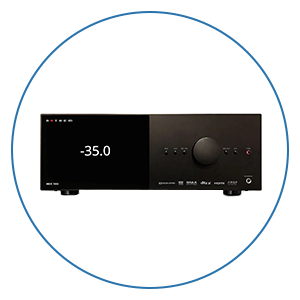



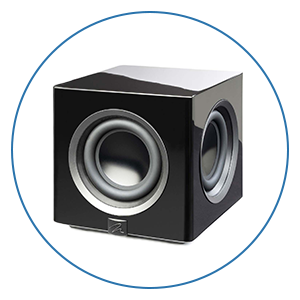

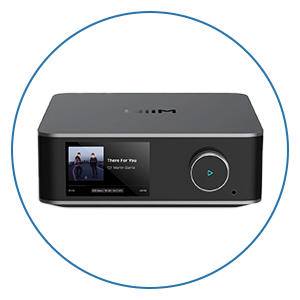
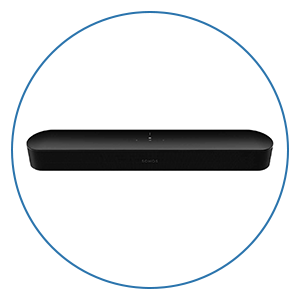



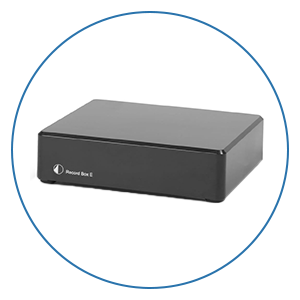




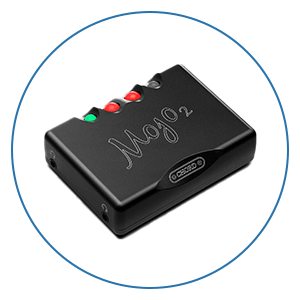

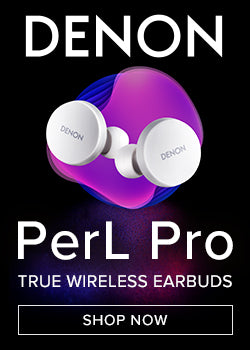

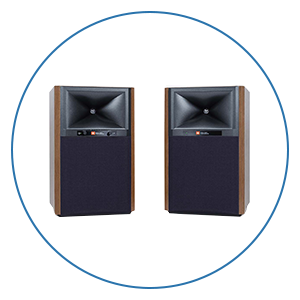
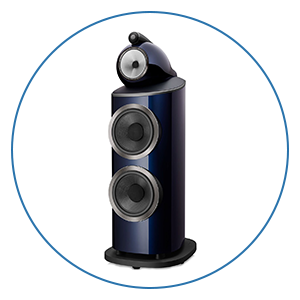
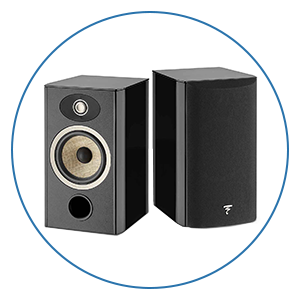






 Home Theater
Home Theater Speakers
Speakers Tower Speakers
Tower Speakers
 Bookshelf Speakers
Bookshelf Speakers
 Center Channel Speakers
Center Channel Speakers
 Wall & Ceiling Speakers
Wall & Ceiling Speakers
 Surround Speakers
Surround Speakers
 Dolby Atmos Speakers
Dolby Atmos Speakers
 Subwoofers
Subwoofers
 Soundbars
Soundbars
 Speaker Stands & Mounts
Speaker Stands & Mounts
 Components
Components Home Theater Receivers
Home Theater Receivers
 Surround Sound Processors
Surround Sound Processors
 Power Amps
Power Amps
 Movie Sources
Movie Sources
 TVs & Projectors
TVs & Projectors Televisions
Televisions
 Projectors
Projectors
 Projector Screens
Projector Screens
 TV & Projector Mounts
TV & Projector Mounts
 Seating & Furniture
Seating & Furniture Home Theater Seating
Home Theater Seating
 Media Cabinets
Media Cabinets
 A/V Racks & Shelves
A/V Racks & Shelves
 Accessories
Accessories
 Acoustic Treatments
Acoustic Treatments Absorption Panels
Absorption Panels
 Bass Trap Panels
Bass Trap Panels
 Diffusion Panels
Diffusion Panels
 Acoustic Treatment Packages
Acoustic Treatment Packages
 Cables & Accessories
Cables & Accessories HDMI Cables
HDMI Cables
 Analog Cables
Analog Cables
 Digital Cables
Digital Cables
 USB Cables
USB Cables
 Speaker Cables
Speaker Cables
 Subwoofer Cables
Subwoofer Cables
 Power Management
Power Management
 Featured & Deals
Featured & Deals Best Sellers
Best Sellers
 Sale
Sale
 Home Audio
Home Audio Outdoor Speakers
Outdoor Speakers
 Portable & Bluetooth
Portable & Bluetooth
 Wireless Speaker Systems
Wireless Speaker Systems
 Computer Speakers
Computer Speakers
 Powered Speakers
Powered Speakers
 Integrated Amplifiers
Integrated Amplifiers
 Power Amplifiers
Power Amplifiers
 Stereo Preamplifiers
Stereo Preamplifiers
 Stereo Receivers
Stereo Receivers
 Streaming Media Players
Streaming Media Players
 Digital-to-Analog Converters
Digital-to-Analog Converters
 CD Players
CD Players
 Outdoor Entertainment
Outdoor Entertainment Outdoor Subwoofers
Outdoor Subwoofers
 Turntables
Turntables Manual
Manual
 Automatic
Automatic
 Phono Cartridges
Phono Cartridges Moving Coil
Moving Coil
 Moving Magnet
Moving Magnet
 Moving Iron
Moving Iron
 Mono
Mono
 Phono Preamps
Phono Preamps MC Compatible
MC Compatible
 MM Compatible
MM Compatible
 Record Cleaning & Care
Record Cleaning & Care Stylus Care
Stylus Care
 Cleaning Machines
Cleaning Machines
 Record Cleaning Fluid
Record Cleaning Fluid
 Record Sleeves
Record Sleeves
 Isolation Systems
Isolation Systems Turntable Setup Tools
Turntable Setup Tools
 Turntable Cables
Turntable Cables
 Record Weights
Record Weights
 Turntable Mats
Turntable Mats
 Headphones
Headphones In-Ear Headphones
In-Ear Headphones
 On-Ear Headphones
On-Ear Headphones
 Over-Ear Headphones
Over-Ear Headphones
 Wireless Headphones
Wireless Headphones
 Gaming Headsets
Gaming Headsets
 Headphone Amps & DACs
Headphone Amps & DACs Digital Audio Players
Digital Audio Players
 Smart Home
Smart Home Deals
Deals Limited Time Deals
Limited Time Deals Deals by Category
Deals by Category